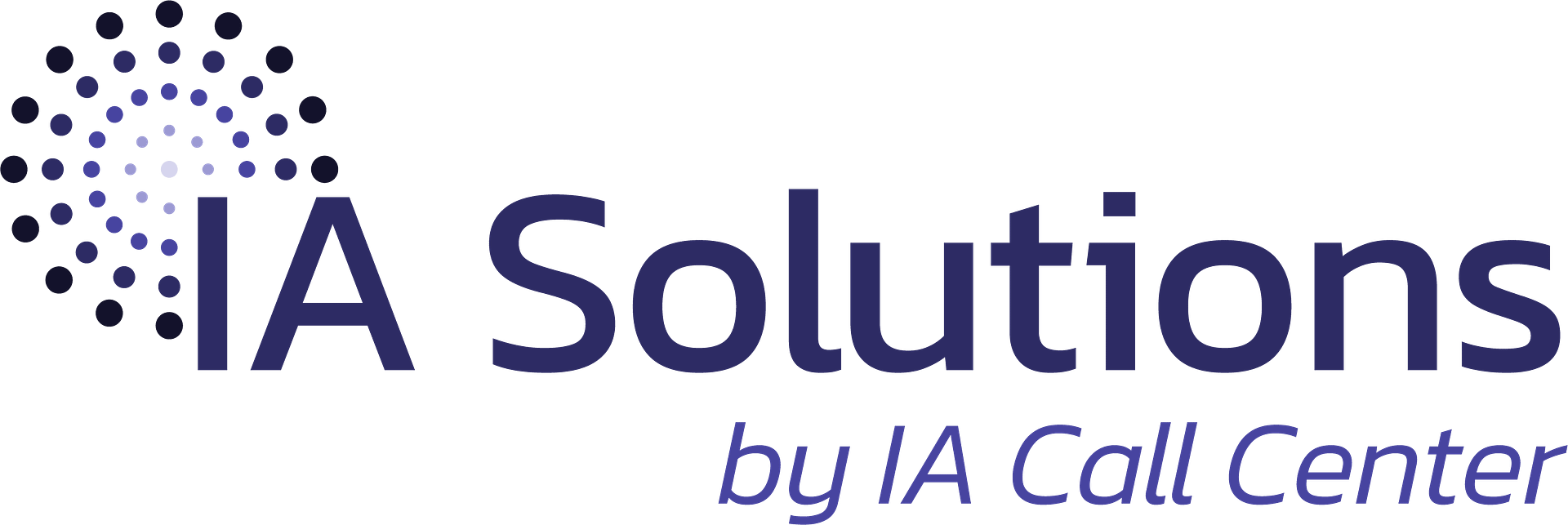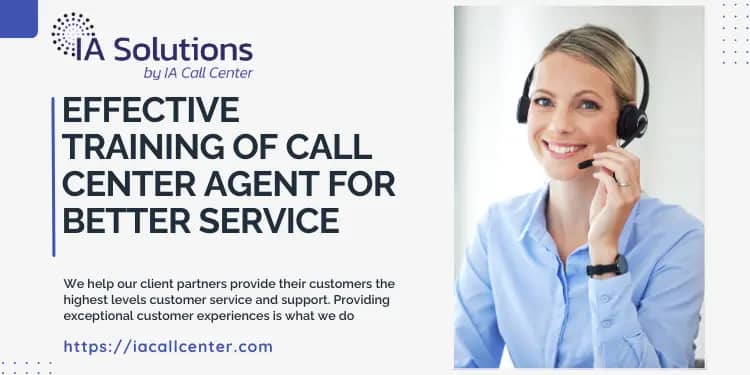The way a call center agent handles customer interactions can shape the entire experience, strongly influencing loyalty and overall satisfaction. While technology enhances call center operations, it’s the consistent actions of agents that truly set the customer experience apart. Scripts and quick thinking have their place, but they’re not the only things that separate high-performing call center agents from the rest. Success that lasts is driven by actionable habits focused on better communication, stronger problem-solving, and improved customer experiences. In this blog, we’ll explore effective training of call center agent strategies that can elevate performance and create consistently excellent customer experiences.

Key Takeaways
- Effective training of call center agent programs are vital for business success, improving service quality, agent confidence, and communication skills.
- A well-structured training program should cover product knowledge, policies, soft skills, and channel-specific best practices, with a focus on ongoing learning and feedback.
- Investing in the training of call center agent teams leads to lower attrition, better performance, increased productivity, and ultimately, superior customer service.
Why Training of Call Center Agent Is Crucial for Business Success
Think about the last time you called customer service. What made it a good experience, or a bad one? Chances are, the agent’s skills and attitude played a big part. For businesses, this interaction is more than just a conversation; it’s a direct reflection of the company. That’s where effective training for call center agents comes in, and it’s a really big deal for success.
When agents aren’t properly trained, things can go wrong fast. Customers might have to repeat themselves, wait longer than they’d like, or get advice that just isn’t right. This leads to frustration, and nobody likes that. In fact, studies show that customer satisfaction can drop significantly if a customer has to call back about the same problem. Investing in good training isn’t just about teaching agents how to answer phones; it’s about equipping them with the knowledge and confidence to solve problems and make customers feel heard.
IA Solutions, through its IA Solutions by IA Call Center programs, understands this deeply. They focus on building agents who are not just knowledgeable about products and services, but also skilled in communication and empathy. This means agents can handle a wide range of customer needs, from simple questions to more complex issues, all while maintaining a positive attitude. It helps reduce how often customers need to call back, which saves everyone time and makes customers happier.
Here’s a look at what good training can do:
- Better Customer Satisfaction: Agents who know what they’re doing and how to talk to people kindly are more likely to leave customers feeling good about the interaction.
- Reduced Agent Turnover: When agents feel supported and capable, they’re less likely to get burned out and look for other jobs. By doing so, the company reduces expenses tied to hiring and onboarding.
- Increased Efficiency: Well-trained agents can resolve issues faster, meaning shorter wait times and more customers helped each day.
Proper training transforms a call center from just a support function into a powerful tool for building customer loyalty and driving business growth. It’s about creating positive experiences that keep customers coming back.
Ultimately, a well-trained call center agent is an asset. They represent the brand well, solve problems effectively, and contribute directly to the company’s bottom line. IA Solutions by IA Call Center’s approach makes sure agents have the tools and skills to be successful, which benefits everyone involved.
Building the Right Training Program for Call Center Agent Development
Creating a solid training program for call center agents is key to improving how customers are treated and, ultimately, how the business does. At IA Solutions, through our IA Solutions by IA Call Center services, we focus on building programs that really work. It’s not just about teaching agents how to answer phones; it’s about equipping them with the skills and knowledge to solve problems effectively and make customers feel heard.

When we design a training program for call center agent roles, we look at what the business needs. This means covering product details, company policies, and how to use the systems agents work with every day. We also put a big emphasis on soft skills. Things like listening well, talking clearly, and showing empathy go a long way in making a customer’s experience positive. If agents are also expected to sell or upsell, we include sales techniques in the training too.
Our approach includes different ways to learn. We use online modules that agents can access anytime, which is great for different schedules. We also incorporate role-playing exercises. This lets agents practice handling tough customer calls in a safe space before they have to do it for real. It’s a practical way to build confidence.
We also believe training shouldn’t stop after the first few weeks. Ongoing learning and regular feedback are important. This helps agents keep up with changes and get better over time. We track how agents are doing using clear goals, so we know what’s working and where more help might be needed. This continuous improvement helps agents perform better and reduces the chance they’ll leave their job, which saves the company money on hiring and training new people.
A well-structured training plan helps agents feel more confident and capable. This confidence translates directly into better customer interactions and higher satisfaction rates. It’s a direct investment in both your staff and your customers.
We make sure our training covers all the bases, from initial onboarding to continuous development. This structured approach means agents are always ready to provide great service. For organizations focused on improving customer experience, developing the right training program is a smart move, and IA Solutions by IA Call Center can help guide that process to boost sales performance.
Step-by-Step Guide to the Call Center Agent Training Process
Getting a new call center agent up to speed and performing well involves a structured approach. It’s not just about throwing information at them; it’s about building skills step-by-step. At IA Solutions, our IA Solutions by IA Call Center programs break this down into manageable phases.

First, we have new agent onboarding. This is where the basics are covered. Think company policies, how to use the systems, and the core products or services. This phase usually takes a few weeks, setting a solid foundation.
Next comes shadowing. A new agent will listen in on calls handled by experienced team members. This gives them a real-world view of how to handle different customer interactions and apply the knowledge from onboarding.
After shadowing, we move into a phase often called ‘nesting’ or guided practice. Here, new agents start taking calls themselves, but with a trainer or a senior agent readily available to offer immediate help and feedback. It’s a crucial step for building confidence and refining skills in a supported environment.
Finally, training doesn’t stop there. We emphasize ongoing development. This means regular coaching sessions, updates on new products or procedures, and opportunities to practice challenging scenarios through role-playing. Continuous learning keeps agents sharp and improves service quality over time.
Here’s a quick look at the typical flow:
- Onboarding: Foundational knowledge and system training.
- Shadowing: Observing experienced agents.
- Nesting/Guided Practice: Taking calls with support.
- Ongoing Training: Continuous learning and skill refinement.
This phased approach, supported by accessible online modules and regular feedback, helps agents become proficient and confident in their roles, directly impacting customer satisfaction and business results.
How Training of Call Center Agent Shapes a Good Call Center Professional
Becoming a skilled call center professional is about more than just knowing the product or service. It’s about developing a set of habits and skills that make every customer interaction a positive one. IA Solutions, through its IA Solutions by IA Call Center training programs, focuses on building these core competencies.
The right training helps agents understand not just what to say, but how to say it, and why it matters. This approach moves beyond basic script-following to genuine problem-solving and customer care. Agents learn to actively listen, show empathy, and communicate clearly, even when dealing with difficult situations. This is key to understanding how to become a good call center agent.
Here are some key areas where training makes a difference:
- Product and Service Knowledge: Agents need a solid grasp of what they are supporting. Training ensures they can answer questions accurately and efficiently.
- Communication Skills: This includes clear speaking, active listening, and using positive language. It also covers how to handle different communication channels like phone, email, and chat.
- Problem-Solving Techniques: Training equips agents with methods to identify issues, explore solutions, and guide customers to resolution.
- Customer Handling Skills: Learning how to manage customer emotions, de-escalate tense situations, and maintain a professional demeanor is vital.
IA Solutions by IA Call Center’s training methods often include a mix of learning formats to suit different styles. This can involve:
- Interactive online modules
- Role-playing exercises to practice real-world scenarios
- One-on-one coaching sessions for personalized feedback
Consistent practice and feedback are what turn learned skills into ingrained habits. This continuous development is what separates average agents from exceptional ones, directly impacting customer satisfaction and business reputation.
Effective Call Center Training Strategy to Improve Service Quality
A solid call center training strategy is key to making sure customers get the help they need and feel good about it. It’s not just about teaching agents how to use the phone system; it’s about giving them the tools to effectively address diverse customer needs. At IA Solutions, through our IA Solutions by IA Call Center programs, we focus on building this capability. We understand that agents are the face of your business, and their interactions directly impact customer satisfaction and loyalty.

For us, training is an ongoing commitment, not just a one-time effort. This means continuous learning and regular feedback are built into our approach. For instance, we incorporate role-playing exercises that mimic real customer scenarios. This helps agents practice handling difficult conversations or complex issues in a safe space. This practical application is far more effective than just reading a manual.
Our training covers several key areas:
- Product and Service Knowledge: Agents need to know what they’re talking about. We make sure they have up-to-date information on your offerings.
- Soft Skills: Things like active listening, showing empathy, and clear communication are vital. These skills help build rapport and make customers feel heard.
- Systems and Workflows: Agents must be comfortable with the tools and processes they use daily. Efficient use of these systems means faster resolutions for customers.
- Channel-Specific Communication: Whether it’s phone, email, or chat, agents need to know how to communicate effectively on each platform. We tailor training for omnichannel support.
We also emphasize the importance of tracking agent progress. By setting clear goals and monitoring performance, we can identify areas where agents excel and where they might need more support. Using a data-driven approach helps us fine-tune training methods and elevate service quality. For example, analyzing customer feedback surveys helps us pinpoint specific interactions that went well or could have been handled better.
This instant input highlights agent development needs while uncovering aspects of the customer journey that need improvement.
By analyzing surveys consistently, managers can track trends, uncover ongoing challenges, and highlight agent strengths. Armed with these insights, managers can shape training, refine scripts, and strengthen customer satisfaction. We strive to foster a positive training culture that equips agents to be more confident, efficient, and customer-focused. This focus on agent development is a core part of our call center training strategy.
Investing in your call center agents is investing in your customer relationships. When agents feel prepared and supported, they can provide the kind of service that keeps customers coming back.
Want to make your call center team super helpful and boost customer happiness? A smart training plan is the key! Learning the best ways to train your staff can really make a difference in how well your service works. Ready to see how we can help you build a top-notch team? Visit our website today to learn more!
Putting It All Together for Better Service
So, we’ve talked a lot about what goes into training call center agents well. It’s not just about knowing the products or the systems, though that’s important. It’s really about equipping people with the skills to connect with customers, solve their problems, and make them feel good about the interaction. When agents are trained properly, they feel more confident, and that confidence shows. This leads to happier customers, fewer repeat calls, and a better overall experience for everyone involved. Think of training not as a one-time thing, but as an ongoing process. By focusing on continuous learning, giving agents the right tools, and encouraging skills like empathy and clear communication, businesses can build a team that truly stands out. It’s an investment that pays off, making sure customers feel heard and valued, which is what good service is all about.
Frequently Asked Questions
Why is it important for call center agents to get good training?
Training helps call center agents do their jobs better. When agents are well-trained, they can help customers more effectively, solve problems faster, and make customers happier. This makes customers more likely to stay with the company and can help the business grow.
What are the main things call center agents should learn during training?
Agents should learn about the company’s products and services, how to follow company rules, and how to talk to customers nicely. They also need to learn how to use the computer systems and practice skills like listening well, being patient, and solving problems. Sometimes, they even learn how to sell things.
How can training make call center agents better at their jobs?
Training gives agents the skills and knowledge they need to handle different customer questions and issues. By practicing with role-playing and getting feedback, agents can get better at talking to people, especially when customers are upset. This helps them feel more confident and do a better job every day.












